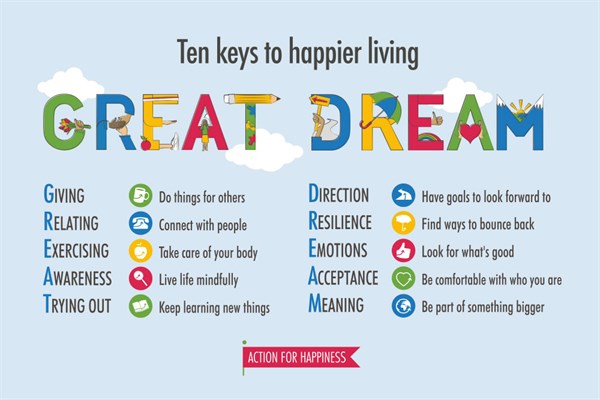Coronavirus and the Happiness of the People
20 Mar 2020 | Richard Layard
On International Day of Happiness (20 March), Professor
Richard Layard, co-editor of the World Happiness Report, shares his
thoughts on the Coronavirus crisis.

We live in very difficult times. All of us are exposed to a
common threat and how we each fare will depend largely on what
other people do. That is of course always true, though we often
forget it.
Today is the International Day of Happiness and we are
publishing the 2020 World Happiness Report. The report demonstrates
that our happiness largely depends on the support of
others, their generosity and their disinterested goodwill.
But in the coming months this will be truer than ever. So I want to
make just two points.
First, now is the time to rebuild our concern for
others - both during the crisis and after it. During the
crisis we need millions to self-isolate, not just to protect
themselves but to protect others whom they might otherwise infect.
At the same time, people who are healthy will need succour to
support the frail - to help with, shopping, messages of support,
and the like. And when children are confined to home while their
parents work, millions of volunteers will need to care for them.
Above all, health care workers will have to go on risking their
lives on behalf of others.
These are the kinds of actions people took all the time during
World War II, and the culture of fellow feeling that developed then
lasted for some decades after the War. We should hope and expect
that the same will happen after this war against the
virus.
I believe we are moving into a very different culture in which
comradeship and cooperation are valued much more
in comparison with interpersonal competition.
And this can also be the moment when governments put the
well-being of their people as their central goal rather than
GDP.
Europe and the USA have already had more deaths than the Far
East where the virus originated and where the population is much
larger. Why was the West so slow to act? It was mainly because we
did not want to disrupt the GDP. But as Thomas Jefferson said, "the
care of human life and happiness is the only legitimate object of
good government". It is time for every government worldwide to
adopt these as their overarching objectives.
Finally let me say a word about how we can care for ourselves
during this crisis. It will take some real wisdom to handle the
anxiety and frustration we will all experience - and some will
suffer much more than this if they lose loved-ones or if their
government fails to protect their livelihoods.
Each of us will choose our own way to handle our state of mind.
Personally I will use the excellent Ten Keys to
Happier Living from Action for Happiness which have been shown to
have astonishing effects on people's happiness. The Ten Keys spell
out GREAT DREAM.

GREAT means giving, relating (remotely of course), exercising,
appreciating and trying out new things - five essential daily
practices for a happy life.
DREAM relates to longer term things like direction.
Whatever way we follow, we must all try to use the crisis to grow
both in ourselves and in our caring for others.
The surrounding clouds are dark but I do believe they can have a
silver lining. From this crisis can emerge a permanent increase in
fellow feeling and commitment to the common good. And in
ourselves we can find new inner strength.
By forcing us to focus on what really matters, this
crisis can lead in the end to a happier society.

Richard Layard is co-founder of Action for
Happiness, co-editor of the World Happiness Report and author of Can We Be Happier? Evidence and Ethics,
published January 2020 by Penguin.